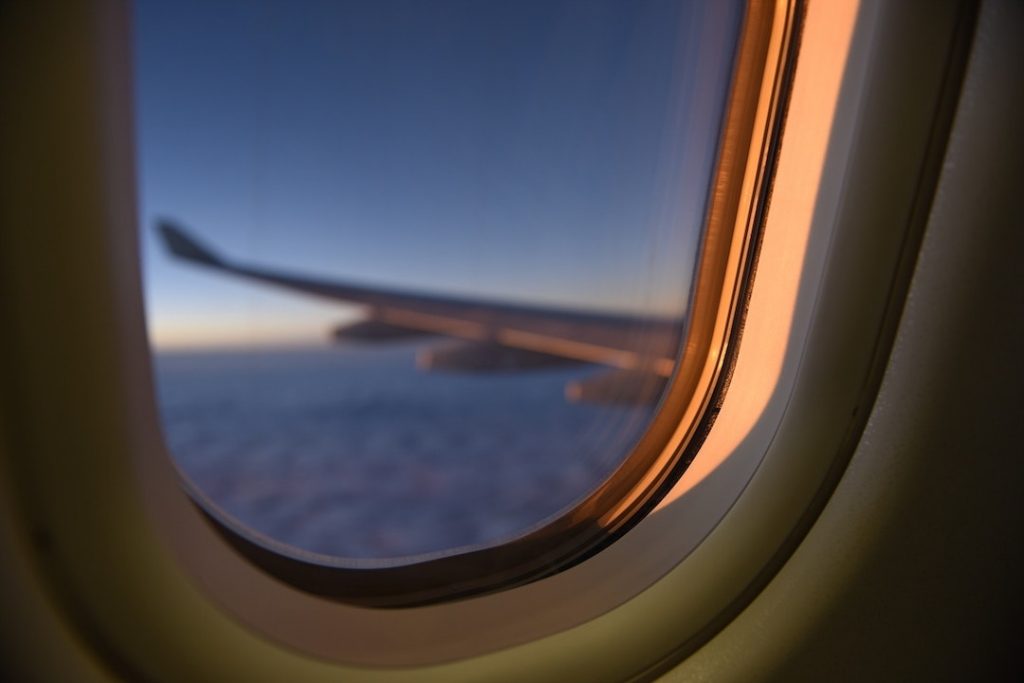Travelling is an exciting opportunity to grow as a person and experience new things you may never have otherwise experienced. Travel is known to improve communication skills, increase confidence and tolerance, and make memories that last a lifetime. Of course, that means travel should be accessible to everyone. However, traveling with a nut allergy means extra considerations and can make things a little more complicated.
With a bit of extra planning, traveling with a nut allergy is definitely possible, no matter how severe. If you’re about to set out on a new adventure, or if you’re traveling with someone who has a nut allergy, read on for our guide to traveling with a nut allergy!
Flying with a nut allergy
Most of the time, flying with a nut allergy is perfectly safe: generally speaking, one person eating nuts on the plane won’t cause a reaction. However, if your allergy is especially severe, it may be a good idea to call ahead to the airline and inform them of your allergy.
While there’s no guarantee about what the airline will do (as all of them will have different policies), it’s always a good idea to let the crew know beforehand. Occasionally, they will make an announcement to the other passengers, requesting they not bring nuts on board with them.
If you do have a reaction on board, don’t panic: if you use an adrenaline injector such as an EpiPen, it will be allowed with you on the plane, and you can use it. Flight attendants may also move you to a different area of the plane and, if needed, provide extra oxygen.

Tips for traveling with a nut allergy
When you’ve arrived safely, you may feel like your stress is only beginning. However, there are many ways you can make your travel experience safe, fun, and comfortable. As with any traveling, the best way to avoid error is through planning ahead and communicating your needs.
Call ahead and ask about food policies
If you’re joining a tour, make contact with your tour leader and advise them of your allergy. You likely won’t be the first person with an allergy they’ve led, and they’ll have plenty of tips and tricks for you.
If you’re traveling solo, it may be a good idea to look up restaurants beforehand and check out menus. If they seem like a good place or make reference to nut-free practices, make a note of it and consider visiting on your trip.

Pack safe snacks
If it’s possible, bringing along your favorite snacks is a great idea. When you’re in a country where you may not know where to find snacks that are safe for you to eat, it can be helpful to have some available. Stick some sealed, non-perishable snacks into your checked baggage, and carry a couple with you while you’re out exploring. Just remember not to litter and be courteous of food policies at certain national parks and monuments.
Make sure you travel with your adrenaline injector
Whether it’s an Epi-Pen or another form of adrenaline injector, make sure you always have it on hand. Emergency medications aren’t generally subject to the same regulations as other liquids or sharps, so don’t worry about flying with one. If you can, bring an extra in case one is lost, stolen, or, in the worst-case scenario, used.
If you’re traveling with someone, make sure they understand the signs of anaphylaxis and know how to administer an adrenaline injection if you need it. It’s a good idea to know that you’re traveling with someone who will remain calm in case of emergency: talk before you leave about what to do if the worst happens, and you have a severe reaction.

Practice saying, “I have a nut allergy” in different languages
Language barriers could pose a big risk for travelers with severe nut allergies: if you can’t tell someone about your allergy, how can they help you? Practise phrases such as “I have a nut allergy” or “I need medical assistance.”
Here’s how to say “I have a nut allergy” in a few languages.
- “J’ai une allergie aux noix.” (French)
- “Tengo una alergia a las nueces.” (Spanish)
- “Ho un’allergia alle noci.” (Italian)
- “Eu tenho alergia.” (Brazilian Portuguese)
- “Wǒ yǒu jiānguǒ guòmǐn” (Chinese pinyin)
- “Ich habe eine Nussallergie” (German)
If you aren’t comfortable attempting to speak the language (or if you’re having a reaction and can’t), it also may be a good idea to carry translation cards.
- Justhungry.com has a selection of allergy cards you can show to people to make sure everyone knows the situation.
- The phrase is also 我有堅果過敏 in Chinese traditional writing and 我有坚果过敏 in simplified Chinese.
The most important thing to remember when traveling with any allergy is that it’s entirely possible to enjoy yourself abroad. With a little extra planning and communication between you and your travel partner, or you and your tour operator, you can have a stress-free trip.
What are your top tips for traveling with a nut allergy? Let us know!


